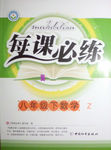题目内容
He must have sensed that I ______ him. He suddenly glanced at me and said quietly, “Why are you staring at me like that?”
A. would look at B. looked at
C. was looking at D. am looking at
练习册系列答案
 每课必练系列答案
每课必练系列答案
相关题目
题目内容
He must have sensed that I ______ him. He suddenly glanced at me and said quietly, “Why are you staring at me like that?”
A. would look at B. looked at
C. was looking at D. am looking at
 每课必练系列答案
每课必练系列答案